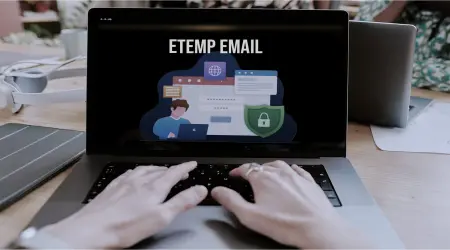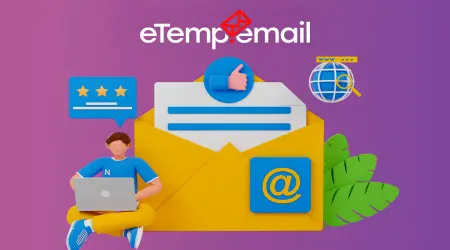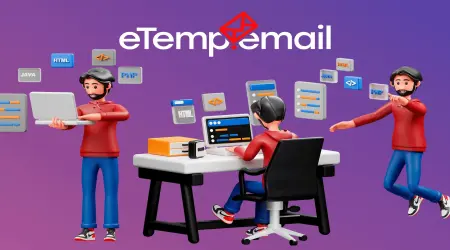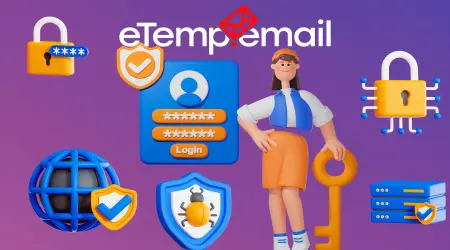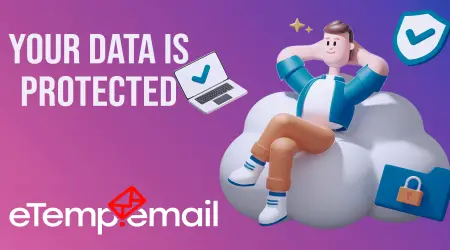
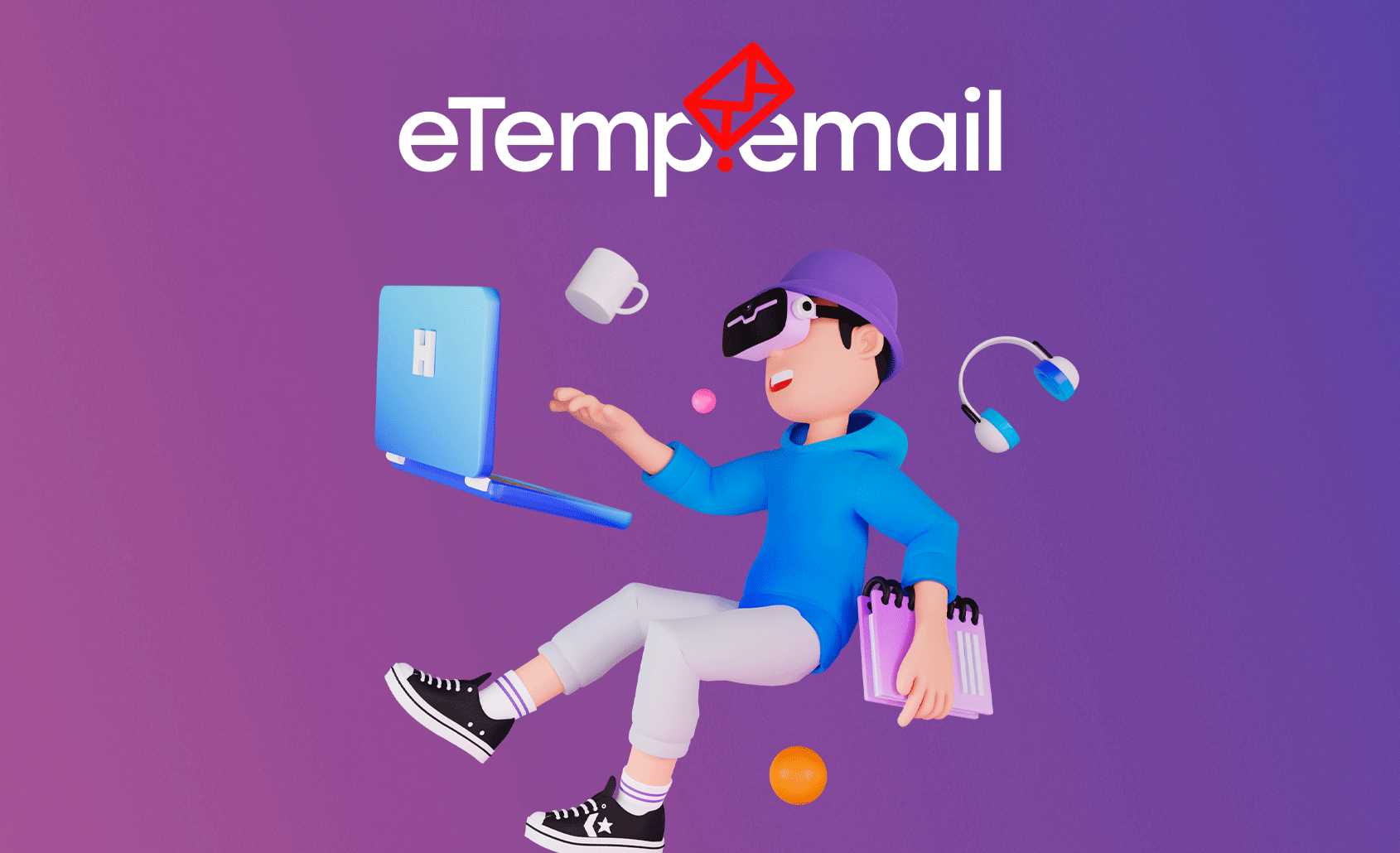
Meta-Universe 2.0: How Virtual Worlds Are Becoming the New Reality
In 2025, the meta-universe is no longer just a futuristic concept; it's rapidly evolving into a tangible new reality where individuals work, socialize, learn, and entertain themselves. Meta-Universe 2.0 represents a significant leap forward, seamlessly blending immersive virtual worlds, sophisticated augmented reality (AR), and cutting-edge technologies to create truly integrated and persistent digital experiences.
But how exactly are these expansive virtual spaces reshaping our daily lives, and why is data protection within the meta-universe becoming an absolutely critical concern? This article will explore what Meta-Universe 2.0 entails, its profound impact on society, and how eTemp.email empowers you to safeguard your privacy and security as you navigate these emerging virtual frontiers.
What Is Meta-Universe 2.0? An Evolution of Digital Experience
Meta-Universe 2.0 signifies the advanced evolution of virtual worlds, building upon concepts that gained widespread attention starting around 2021. It intricately weaves together Virtual Reality (VR) for full immersion, Augmented Reality (AR) for overlaying digital content onto the physical world, blockchain technology for ownership and decentralized structures, and Artificial Intelligence (AI) for dynamic, responsive environments.
Unlike earlier iterations, Meta-Universe 2.0 in 2025 offers key features that define its transformative nature:
- Interoperability: Users can seamlessly move between different virtual platforms and experiences while retaining their digital assets – such as avatars, virtual clothing, and unique items – allowing for a truly connected digital identity across disparate worlds.
- Blockchain Economics: The integration of NFTs (Non-Fungible Tokens) and cryptocurrencies establishes real digital property ownership within these virtual spaces. This enables verifiable ownership of virtual land, art, collectibles, and other in-world assets, fostering vibrant new economies.
- Hyper-Realism and Immersion: Significant advancements in graphics, AI-driven environmental generation, and haptic feedback technologies are making virtual worlds increasingly indistinguishable from physical reality, enhancing sensory engagement and presence.
How Is the Meta-Universe Changing Our Lives? Beyond Gaming
Meta-Universe 2.0 is rapidly integrating into nearly every facet of life, fundamentally altering how we interact with technology and each other, from professional collaboration to leisure.
1. Work and Education: Virtual Frontiers for Productivity
Leading enterprises and educational institutions are actively integrating meta-universe concepts into their operational frameworks. Virtual offices are becoming commonplace, enabling global teams to conduct meetings, collaborate on projects, and interact in immersive 3D environments that enhance presence and engagement. Universities are establishing digital campuses, offering enriched remote learning experiences with interactive simulations, virtual labs, and global access. Industry reports from 2024 indicate that a significant percentage of large companies have already implemented virtual environments for employee training and development.
2. Entertainment and Socialization: New Dimensions of Connection
Popular virtual platforms offer unprecedented opportunities for entertainment and social interaction. Users can attend live concerts, explore art exhibitions, join virtual parties, and engage in diverse social gatherings. The ability to create highly customizable avatars, purchase and display digital fashion, and interact in real-time fosters a sense of community and self-expression. The virtual gaming market alone is estimated to exceed $50 billion in 2025, pushing the boundaries of interactive entertainment.
3. Economy and Business: Unlocking Digital Value
The meta-universe is a fertile ground for entirely new business models and revenue streams. Major global brands are establishing a presence, selling virtual goods, unique digital collectibles (NFTs), and creating immersive brand experiences. Companies are leveraging these virtual spaces for marketing, designing interactive campaigns that engage audiences at rates significantly higher than traditional campaigns (based on 2024 data, some showing engagement up to 40% higher). New service industries are emerging, from virtual real estate agents to digital fashion designers.
Challenges and Risks of the Meta-Universe: Navigating New Threats
As the meta-universe gains widespread adoption, it also introduces a new spectrum of cybersecurity threats and privacy concerns that users must be aware of:
- Intrusive Data Collection and Biometric Leakage: Meta-universe platforms, especially those relying on VR/AR, collect highly sensitive data. This can include biometric information such as eye movements (gaze tracking), voice patterns, facial expressions, gait, and even emotional responses. This data can be uniquely identifying and, if compromised in a data breach, could lead to unprecedented privacy invasions or the creation of unique digital identifiers linked to your physical self.
- Sophisticated Phishing and Fraud: The immersive nature of virtual worlds makes them prime targets for advanced phishing and fraud schemes. Hackers can create highly convincing fake virtual spaces, imposter avatars, or fraudulent virtual storefronts to steal credentials, crypto wallet access, or engage in deceptive digital asset sales.
- Digital Asset Theft: With the rise of blockchain-based economies, NFTs and crypto wallets become prime targets for cyberattacks. Vulnerabilities in smart contracts, insecure platform integrations, or social engineering can lead to the permanent theft of valuable digital assets.
- Digital Identity Management: Users may maintain multiple avatars or personas across different meta-universe platforms, leading to challenges in managing privacy settings and preventing cross-platform tracking or misuse of personal data.
To safely interact with the meta-universe, it is paramount to prioritize your data protection. When signing up for new platforms, especially those in early stages, always use
The Future of the Meta-Universe by 2030: An Integrated Reality
By 2030, the meta-universe is predicted to become an even more pervasive and integral part of everyday life. Experts foresee:
- Mass Adoption of AR/VR Devices: Lightweight, stylish augmented reality glasses are expected to become as common and essential as smartphones, seamlessly integrating digital information and experiences into our physical world. Haptic suits and advanced sensory feedback technologies will further enhance immersion.
- True Decentralization: Blockchain technology will continue to mature, providing users with unprecedented control over their data, digital identities, and assets, fostering a truly self-sovereign digital existence free from centralized control.
- Deep Integration with AI: Virtual assistants and intelligent NPCs (Non-Player Characters) will become ubiquitous, personalizing experiences within the meta-universe, offering dynamic content, and providing adaptive learning environments.
- Demand for Quantum-Resistant Cryptography: As the meta-universe expands and quantum computing advances, the need for
quantum-resistant cryptography
How Does eTemp.email Help in the Meta-Universe? Your Privacy Shield
Participating in the burgeoning meta-universe often requires registration on multiple platforms, from gaming worlds to corporate collaboration spaces. Every new registration inherently carries a risk of data leakage or exposure. eTemp.email acts as a crucial privacy shield in this evolving digital landscape:
- Create Temporary Email Addresses in Seconds: Rapidly generate unique email addresses for each new meta-universe platform you wish to explore, minimizing the commitment of your primary identity.
- Protect Against Phishing and Spam: Shield your main inbox from unwanted marketing, newsletters, or malicious phishing attempts that might originate from less secure or experimental virtual platforms.
- Preserve Anonymity When Testing New Virtual Platforms: Experiment with cutting-edge meta-universe features and beta environments without linking your personal identity or primary email to potentially unknown data collection practices.
- Isolate Risk: If a meta-universe platform experiences a data breach, only your temporary email is exposed, keeping your primary digital identity secure.
Conclusion
The Meta-Universe 2.0 in 2025 opens up unprecedented opportunities for work, entertainment, and business, promising a future of immersive digital experiences. However, this exciting evolution demands heightened attention to cybersecurity and data privacy.
By proactively using robust tools like eTemp.email, you can safely explore these emerging virtual worlds, experiment with new platforms, and engage with the digital frontier without risking your personal data. Try
